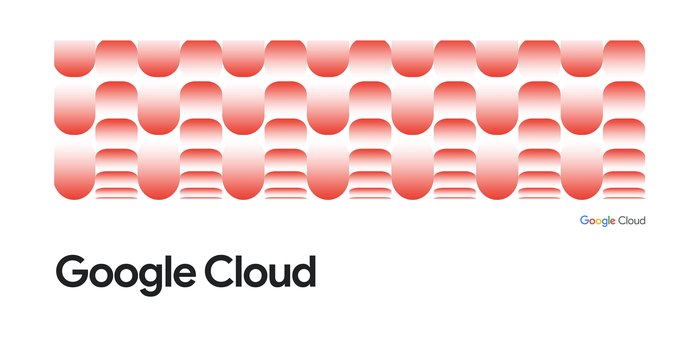Ensuring fair and open competition in the cloud
Marcus Jadotte
VP of Government Affairs and Public Policy, Cloud
Cloud-based computing is one of the most important developments in the digital economy in the last decade. It has reduced costs, improved security, simplified interoperability, and delivered services with unprecedented reach. It has also laid the foundation for entirely new companies. Name any fast-growing business today—Spotify, Revolut, Snap, etc.—and it has likely benefited from the elasticity and flexibility of the cloud. That’s because these firms are able to scale their technology use as they grow, freed from the constraints of packaged software.
Over the last several weeks, the U.S. Congress has mulled the creation of a new bill that would drive more transparency from government agencies about their procurement of cloud services, ensuring agencies aren’t overpaying for them from a single vendor. Regulators in Europe and APAC are scrutinizing cloud licensing practices. Japan, France, the Netherlands and, most recently, the U.K. are all examining the practices of firms in the public cloud market and barriers to competition.
Why are governments now focused on something as arcane as cloud licensing? It’s because the cloud is at an inflection point in the contest between legacy software constructs—restrictive licensing, closed ecosystems, and tying—and the cloud’s original promise and potential—open, elastic, and free from artificial lock-ins. At this critical moment, unfair licensing restrictions on cloud services could have harmful impacts, ranging from higher costs for businesses, to government waste for taxpayers, to more security breaches, to a chilling effect on local cloud and software providers.
Why an open cloud is important
CISPE, a coalition of European cloud infrastructure providers, published a study last year that illustrated how software license terms enforced by legacy software companies can distort competition. The study documented how companies with market power in one area of software can steer business customers to their own cloud services. If allowed to continue, the study suggests, these practices will hurt competition—damaging the viability of European cloud infrastructure providers and the businesses that rely on them.
CISPE’s research is an important warning for the future of cloud computing. With overly complex agreements that lock in clients for years to come, certain legacy software vendors are trying to turn their on-premise monopolies into cloud monopolies. In doing so, they are not only forcing customers toward a monolithic cloud model, but also creating downstream effects that would limit choice and potentially disrupt growing and thriving digital ecosystems in the United States, Europe, and around the world.
Locking customers into a single cloud vendor also poses significant security and operational risks for organizations. For example, when companies rely on only one cloud provider for their productivity software, they become an easier target for hackers; this is a particular issue with legacy providers, whose outdated architectures create serious security vulnerabilities. In addition, customers locked into a sole-source vendor don’t have the choice or flexibility to change providers, adopt a multi-cloud strategy, or migrate back to on-premise environments when needed.
How Google promotes fair and open licensing practices
Google supports openness and interoperability. We have been a leader in promoting fair and open licensing for our customers since the start of the cloud revolution. We were the first to launch a multi-cloud infrastructure service (allowing customers to run workloads across multiple clouds), the first to launch a multi-cloud data warehouse (allowing customers to manage data across multiple clouds), and one of the first to build digital sovereignty offerings in Europe.
We continue to talk with regulators about the need to promote thriving competition for cloud services. And we have spent time listening to customers to understand their concerns on unfair cloud software licensing and how it impacts their businesses and users. We’re proud to support trade groups and associations in the United States and Europe advocating for the goal of an open and competitive cloud market, including the Computer and Communications Industry Association (CCIA) and the Alliance for Digital Innovation (ADI). We applaud the work of the Coalition for Fair Software Licensing, and we support the Fair Software Licensing Principles adopted by CISPE, Cigref, and other groups to protect choice, innovation, and growth of the digital economy in Europe.
If adopted by industry, governments, and regulators, the principles and reforms supported by these coalitions will give businesses and consumers more choices at lower prices, with more innovation, interoperability, and portability. These principles don’t benefit any one cloud vendor; they ensure that every provider has a fair opportunity to innovate and improve its products.
Creating a thriving digital economy
We will continue to advocate against unfair practices, highlighting the consequences of licensing lock-in from legacy vendors. We will continue to work with coalition partners to promote the principles of fair software licensing, calling out practices that seek to unfairly tilt the playing field by limiting choice and competition. And we will continue to hold ourselves to a high standard, ensuring our Google Cloud products and services compete fairly in the market, because that is best for the customer and the digital economy overall.
Innovation in the cloud should be protected. It’s no time to continue the anticompetitive software practices of the 1990s. The cloud offers boundless possibilities and the promise of continued innovation and growth. We look forward to continuing this discussion on how to keep the cloud open and free.



